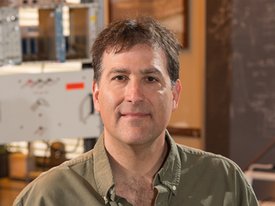
Steven Blusk
DEPARTMENTS
- Physics
Professor and Co-Director of Undergraduate Studies
CONTACT
-
327 Physics Building
Email: sblusk@syr.eduOffice:
CV
Entries in the areas listed below (other than biography and books) are selections delimited to the last five years. Consult the faculty member’s biography, listed website(s) or CV for additional information.
